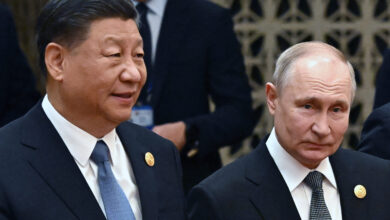Netherlands faces ‘technical recession’ amidst economic challenges
Dutch GDP shrinks by -0.3% in Q2 2023, marking a second consecutive contraction, led by declining international trade and household spending. Sectors like agriculture, trade, and hospitality are hit hardest.

The Netherlands encountered a setback as its GDP contracted by -0.3% in the second quarter of 2023, marking a decline for the second consecutive quarter and officially pushing the nation into a ‘technical recession’. This economic downturn was primarily influenced by reduced international trade and a drop in household consumption.
In comparison to the initial three months of the year, where the economy shrank by -0.4%, the second quarter contraction further deepened the recession. Year-on-year, the GDP was also -0.3% smaller during the same period in 2022. This contraction was attributed to declining exports of goods, a decrease in household spending, and an upswing in imports.
Exports demonstrated a parallel weak performance to the earlier months of the year, declining by -0.7% in the second quarter. This decline was solely due to a decrease in goods exports by -1.4%, whereas service exports saw a growth of 2.5%. Surprisingly, the net trade’s contribution to GDP growth was even worse, as imports grew by 0.5% in both goods (0.7%) and services (0.1%).
Government consumption expanded by 0.7%, in line with the previous coalition agreement. The growth was particularly noticeable in collective government consumption (1.3%), with healthcare and education playing a role.
The Netherlands’ economic woes were driven by contractions in various sectors. Agriculture and fishery took the hardest hit (-4.1% quarter-on-quarter), while the trade, transport, and hospitality sector, which encompasses retail, experienced a -2.0% decline.
Looking ahead, the Netherlands anticipates a relatively stagnant GDP, with modest quarterly growth figures expected to hover around zero. While wage growth surpassing inflation provides positivity, challenges such as higher interest rates and international uncertainties continue to cast a shadow over the economic outlook.
Moreover, the recent fall of the government could potentially slow down government expenditure growth. Despite these challenges, a tight labour market and labour hoarding by firms are expected to prevent a severe recession with high unemployment levels.
Also, have a look at : Meet Lokesh Kumar: Delivery executive turned Netherlands’ net bowler for 2023 Cricket World Cup



